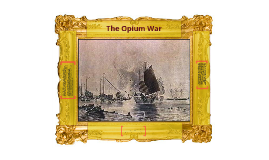picture frame
Transcript: secondary Today, we learned about cutting with the saw. We also learned about guiding cuts, how to get the saw unstuck when cutting, and some tips and tricks on how to cut properly. I stuck my template Medium Density Fiber plank. I found it a little difficult to cut with the saw,it was also difficult to make it state , an assistant helped me finish sawing off the sides A research plan also requires identifying primary & secondary research. picture frame Picture frame today we conteneud drilling While drilling, you have to push towards it so that it makes better progress and takes less time to completely drill through the wood. i started cutting out the inside part i got help from Kendrick and one of the assistant The End Primary & secondary resources Picture frame She needs another frame #day4 examples for your reference. Is the picture frame complete? Will it stick to the fridge? Is the picture meeting the client’s requirements (specifications)? Is the picture frame attractive, eye-catching? Can you change the picture easily? Will you buy this picture frame? What makes a good picture frame? What colors attract your audience? Which type of picture frame will attract my audience? What more dose your targets need? How can I make a multifunctional picture frame? What do I need to make this? What is the team of the frame? What will impress your target audience? What is my target? Who is my target? Why is he/she your target? A research plan is a guide to collect information that you will be using later in your poster. A research plan is a guide to collect information that you will be using later in your poster. Your Task: Inquire, research and analyze a problem for my mom In the Kitchen On my frige Picture frame primary secondary What problem will it help solve? She needs another frame journal Interview your client Picture frame Research Plan & Questions client my mom 11 Evaluation Questions Survey people who are your audience Step 1: Inquire & Analyze Brainstorming Level 1: Who can be your possible client? #day3 For my mom Opinions, blogs primary For my mom Qustains #day5 DIY videos etc Picture frame primary resources She needs another frame Picture frame A research plan also requires identifying primary & secondary research. Insert a screenshot/picture of the picture frame here. What can be your solution & the Problem Statement? What problem will it help solve? She needs another frame Survey people DIY videos interview the theme is Halloween because? my mom likes Halloween and its her favorite festival Research Plan & Questions Survey people DIY videos interview And a magenet Today, an assistant helped me finish sawing off the sides by using a big saw machine, so I started with the center punch. A center punch is a technique used to make a guide for the drilling process. A piece of metal shaped like a screw would be hammered by a mallet in dots drawn about a centimetre in from each corner of the template.. The other hand should be gripping the drill, where the power button should be And a magenet Opinions, blogs Insert a screenshot/picture of the picture frame here. Your Task: Inquire, research and analyze a problem What makes a good picture frame? What colors attract your audience? Which type of picture frame will attract my audience? What more dose your targets need? How can I make a multifunctional picture frame? What do I need to make this? What is the team of the frame? What will impress your target audience? What is my target? Who is my target? Why is he/she your target? Interview your client #day 2 for my mom In the Kitchen On my frige DIY videos etc Qustains picture frame What can be your solution & the Problem Statement? #day3 What makes a good picture frame? What colors attract your audience? Which type of picture frame will attract my audience? What more dose your targets need? How can I make a multifunctional picture frame? What do I need to make this? What is the team of the frame? What will impress your target audience? What is my target? Who is my target? Why is he/she your target? Today, I started filing the inside of my wood. The file will make the wood smoother and more level on the inside. I used the vice to clamp my frame in place, then filed 2 of the insides and sanded all of outsides. Next time, I think I can work faster and manage to squeeze in more work. Today, an assistant helped me finish sawing off the sides by using a big saw machine, so I started with the center punch. A center punch is a technique used to make a guide for the drilling process. A piece of metal shaped like a screw would be hammered by a mallet in dots drawn about a centimeter in from each corner of the template. It was also difficult to steer so you follow the line accurately. You always had to saw in a downwards direction, to prevent blade breakage and accidents which effected my center punch in my picture frame After all four had been done, I moved on to drilling. The wood is put into the vice. Drilling was fun,

















